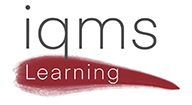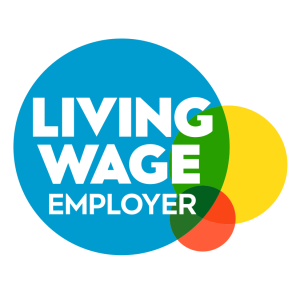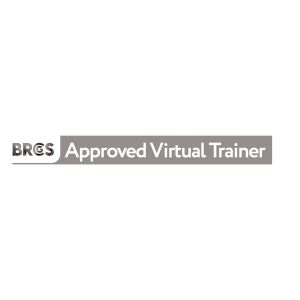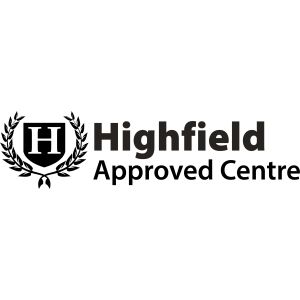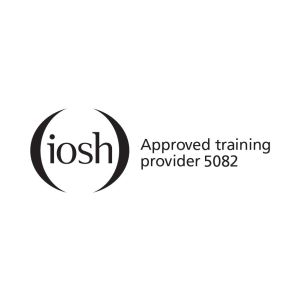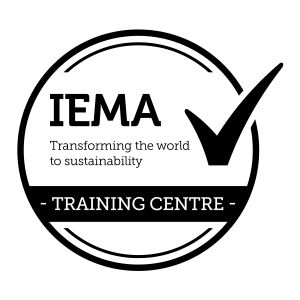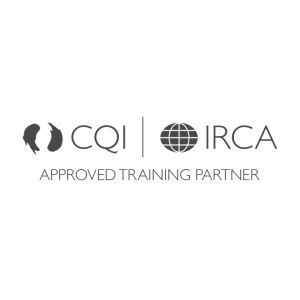With increasing complexity and demands of organisational processes there is a pressing need to ensure operational efficiency never drops. When it does, or where faults occur, it is critical that staff are equipped with the skills to investigate, determine cause(s) of the error and point to a solution. This investigation must be robust and always conducted in a time sensitive environment. Root Cause Analysis is an investigation process within the field of ISO Standards Management Systems such as ISO 9001 (Quality), ISO 14001 (Environmental) and ISO 45001 (Health & Safety) for example. This course will equip delegates with the knowledge, practical methods and skills to use RCA effectively in a variety of fault-finding applications.Duration1 Day, 09.00 – 17.00Who should attend?Routed in industry, RCA techniques are now commonplace in both product and service environments. Those with a responsibility in process efficiency at any level will benefit from understanding a range of proven methodologies used to conduct a robust root cause investigations and analyses to drive change and improve performance.Course contentThis course covers a range of RCA techniques and skills and uses a complex Case Study featuring an organisation which has established an Integrated Management System. The Case Study facilitates your Root Cause investigations to be conducted with a Quality, Environmental or Health & Safety focus as your investigation and learning brief demands. The course will cover; RCA Process What is Root Cause Analysis (RCA)? What are the steps involved in an RCA process? What methodologies are used within RCA? What are various types of causes? What are best practice guidelines when performing an RCA? What are pitfalls of RCA that you need to be aware of? 5 Whys What is the 5 Whys technique? What is the 5Ws1H technique? How can you use these for RCA? Questioning Skills How can you use a structured approach to make sure you ask the right questions? How to use this structured approach to make sure you ask a diverse set of questions about all potentially involved areas and processes? Evaluating Impact of Change and Decisions How to look forward to evaluate the impact of a change or a new decision on the current state? How to use this forward-looking approach systematically and correctly to get meaningful results? Cause and Effect Diagrams What is a cause-and-effect diagram? What is a fishbone diagram? How can you use this technique to search for root causes? Appreciation Technique What is appreciation technique? Often referred to as the “So What” approach used to consider the consequence of an upcoming change? Pareto Analysis What is Pareto principle? How can you use the Pareto Principle to prioritise your RCA approach systematically to avoid misdirecting resources and wasting time and money focusing on the wrong issues? Impact Analysis What is impact analysis? How can you use a powerful matrix to evaluate and focus on high-risk areas first? What are the 5 steps involved in an impact analysis? What are the benefitsConfident in Root Cause Analysis, those trained will be equipped to plan an investigation, prioritise time, question effectively, understand the relationship between cause and effect and apply risk-based thinking to identify suitable solutions.In-House CoursesOffering better value for money, they can be designed to closely match your specific requirements.Style of Delivery and Course LeadersOur course tutors are approved training providers, approved by BRCGS, CQI and IRCA, IEMA and Highfields Qualifications. They are qualified and experienced with extensive practical knowledge across a wide range of industrial, technical, product and service and commercial sectors.CertificationAll delegates will be awarded a certificate verifying attendance and satisfactory completion of the course.
Foundation Courses Health And Safety
This one-day CQI and IRCA certified training course is for those wanting an introduction to the new international occupational health and safety management system (OHSMS) standard ISO 45001:2018 and to understand how it can be used to develop, maintain and improve your health and safety performance. Knowledge and understanding of ISO 45001:2018 is more than simply reading the standard’s text. It demands an understanding of the requirements and a considered application of the standard to the organisation. After this course, you will have sufficient insight to be able to evaluate your own organisation’s arrangements and identify how they can be improved.Duration1 Day, 08:30 – 17:00Who should attend?This course is designed for those needing an introduction to OHSMS and is a pre-requisite for those wishing to attend the CQI and IRCA certified OHSMS Internal Auditor or Lead Auditor course. It is ideal for managers, supervisors, health and safety representatives, OH&S consultants and those with health and safety management responsibilities or anyone wishing to understand the impact and relevance of ISO 45001:2018 to their organisations.Course objectivesThis course will equip delegates with an understanding of the development and application of OHSMS techniques and how the ISO 45001:2018 standard is interpreted and implemented. On completion of the course delegates will be able to: Understand the purpose and business benefits of an OHSMS Outline the structure and content of ISO 45001 and its relationship with Annex SL Interpret the requirements of ISO 45001 in the context of an effective OHSMS Course content Occupational Health and Safety Management Systems (OHSMS) – introduction and key OHS concepts OHSMS based on ISO 45001:2018 including the Process Approach Key ISO 45001 requirements Organisational context OH&S Policy and Planning Risks and opportunities to the OHSMS Hazard identification and elimination and controls, operation, performance evaluation and improvement ISO 45001:2018 requirements including; worker needs, interests and participation as well as interested parties Continual improvement of an OHSMS What are the benefitsAttendance will enable delegates to: Decide how best to develop the OHSMS of their organisation and avoid common problems Add to their occupational health and safety management career credentials Understand the relevance of OHSMS standards to their organisation Improve OHS decision-making Demonstrate the competitive benefits of OHSMS standards to their own and other organisations In-House CoursesOffering better value for money, they can be designed to closely match your specific requirements.Style of Delivery and Course LeadersOur course leaders have extensive experience across a wide range of sectors including manufacturing, service and professional organisations including Local, National and International Government. This wide experience enables them to make the course more interesting by using their relevant examples and case studies during workshop discussions. Our team of staff has extensive experience of working across cultural boundaries, through their work in Europe, Africa, the Middle East, Asia and the Americas.Certification Delegates successfully completing the course will be awarded a CQI and IRCA Certified training accredited certificate. (2336).
This three-day IOSH Managing Safely course is a risk management course designed to provide supervisors and managers with a step-by-step approach to managing health and safety and supporting their staff. This course is invaluable in giving managers at all levels the confidence to understand and apply knowledge, understand their responsibilities and be a force for cultural change in the workplace. Managers and supervisors will learn how to perform OHS risk assessment and control OHS risk and understand and perform incident investigations. It ensures managers understand their role and responsibilities for driving occupational health and safety standards in their organisation and can assess and measure their own performance.Duration3 days, 8.30-17.00Who should attend?This course is ideally suited for supervisors and managers across all sectors and has no formal entry requirements.Course objectivesThis course will equip delegates with knowledge of the key concepts and building blocks of occupational health and safety in the workplace and develop skills and tools to improve and drive health and safety culture within their own business.Course content Introducing managing safely Assessing risks Controlling risks Understanding responsibilities Understanding hazards Investigating incidents Measuring performance What are the benefitsAttendance will enable delegates to: Be able to assess and control risks and hazards Understand their responsibilities for safety and health Be able to investigate incidents and contribute to investigation teams Be able to reflect and measure their own performance Be able to consider and reflect on good practice In-House CoursesCourses can be adapted to closely match your own organisational specific requirements including flexibility in course delivery.Style of Delivery and Course LeadersThe public version of this course is currently delivered remotely on Zoom. Our course leaders have extensive experience in occupational health and safety management systems across a wide range of sectors including manufacturing, service and professional organisations and both in Local and National government. We have extensive experience working across cultural boundaries, through our work in Europe, Africa, the Middle East, Asia and the Americas.CertificationThe assessment for the IOSH Managing Safely course comprises 30 multiple-choice and short answer questions and a post course short practical assignment (completing a workplace risk assessment). Delegates successfully taking the course and passing the course assessment will be awarded an IOSH Managing Safely issued certificate.
This integrated management systems internal auditor programme combines the disciplines of environmental and health & safety management auditing based on the ISO 14001:2015 and ISO 45001:2018 standards. This three-day interactive training programme is designed for those who need to be able to understand and apply recognised principles and techniques of effective management system auditing to environmental and health & safety management systems. The modern management systems auditor cannot rely on procedural auditing, but also needs to be able to audit processes with an emphasis on risk-based thinking. An effective audit will bring benefits to your organisation and ensure the integrated management system (IMS) continues to meet its objectives. Internal auditors need to understand their role and responsibilities and be sufficiently competent in evaluating the IMS effectively. This course focuses delegates on the most important attributes of an IMS and helps them to understand the role of the auditor in its development and continual improvement.Duration3 days, 9.00 – 17.00Who should attend?This course is essential for those who will undertake internal integrated management system audits based on the ISO 14001:2015 and ISO 45001:2018 standards, or for those who will be required to plan, manage and implement internal audit programmes. Other people who will find this course useful are team leaders and supervisors within the IMS, who are looking to broaden their awareness of quality, environmental and occupational health & safety issues in order to understand how they can improve their overall contribution to the success of the business. The course does not require any past auditing or environmental and health & safety management system experience.Course objectivesUpon successful completion of this course, students will: Understand the purpose and benefits of management systems Have a greater understanding of the structure, content and the intent of ISO 14001 and ISO 45001 Be familiar with the terms and definitions used Have a greater understanding of the concept of the process model and apply the process approach Be aware of all stages of the audit cycle Gain the knowledge and skills necessary to plan, conduct, report internal audits of management systems Course content Overview of ISO 14001:2015 environmental and ISO 45001:2018 occupational health & safety management system requirements Plan-Do-Check-Act methodology Environmental and health and safety management principles Risk-based thinking Auditors roles and responsibilities Types of audits Effective auditing tools and techniques and good audit practices Reporting valid findings and managing corrective actions What are the benefitsUpon successful completion delegates will be equipped with the technical skills and knowledge required to plan, conduct and report internal integrated management systems audits, saving both time spent on auditing and cost to your organisation. Delegates will also find the interactive nature of the course, it’s challenging content and extensive use of team-based exercises an enjoyable and effective way to learn.In-House CoursesOffering better value for money, they can be designed to closely match your specific requirements.Style of Delivery and Course LeadersA combination of presentations and guided exercises together with an interactive role-play exercise involving a simulated audit makes this course both highly beneficial and enjoyable for participants. Our course leaders are IRCA/IEMA qualified and experienced quality, environmental and occupational health & safety management systems auditors with extensive practical management experience across a wide range of sectors including manufacturing, service and utilities, professional, local and national government. We have extensive experience working across cultural boundaries, through our work in Europe, Africa, the Middle East, Asia and the Americas.CertificationDelegates successfully completing the course, including examination, will be awarded an iqms Learning Integrated Management System (IMS) Internal Auditor certificate for ISO 14001 and ISO 45001.
